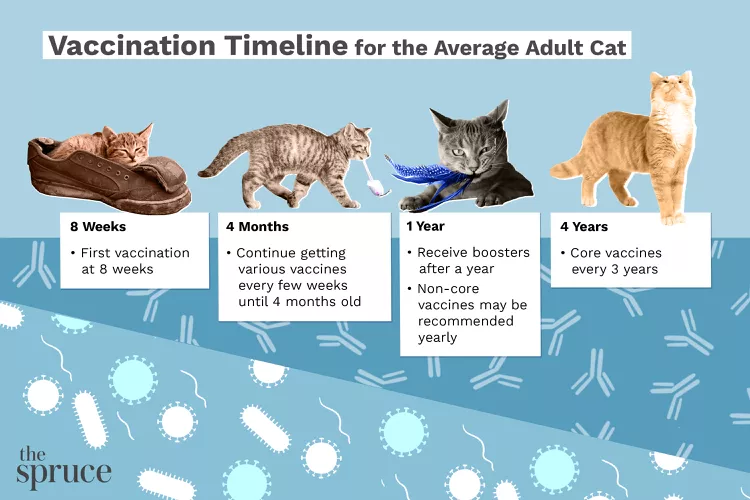
Vaccines are something new kitten owners are usually aware of due to the regular frequency of them but as cats age, vet visits and therefore vaccinations start to become less commonplace for cats. If your adult cat doesn't see the vet at least yearly, it can be problematic not only for the health of your cat but also because of legal reasons. Adult cats need a variety of vaccines and just because they don't need them as often as kittens doesn't mean they shouldn't still receive them.
Vaccinations are also known as and immunizations provide a cat's immune system with an increased capability of effectively fighting off diseases. Without vaccines, cats are not protected from a variety of potentially fatal diseases that they may come in contact with throughout their lives. One vaccine in particular is also needed due to state laws.
Kittens receive their first vaccines at around eight weeks of age and continue getting various vaccinations every few weeks until they are about four months old. After that, they won't need a vaccine until about a year later when they are an adult.
About a year after a kitten has received its last vaccines, it will be time to see the veterinarian for an annual check-up and its vaccination boosters. After that, your cat will still need an annual check-up but the core vaccines will usually only be given every three years. Depending on your cat's lifestyle and risk level, non-core vaccines may also be recommended by your veterinarian and these will still need to be received every year regardless of your cat's age. The exception to this is the rabies vaccine which may need to be given yearly depending on whether or not it is the recombinant or killed type of vaccine.
The American Association of Feline Practitioners (AAFP), the American Veterinary Medical Association (AVMA), and the American Animal Hospital Association (AAHA) recommend certain vaccines be given to all cats regardless of their exposure risk. These vaccines are typically given every three years to adult cats that received them as kittens. Because cats are prone to developing tumors at injection sites, vaccine frequency should be minimized but minimization should not be misinterpreted as avoidance. This is why it is important to follow your veterinarian's recommendation for the vaccination schedule that is best for your cat.
Depending on your cat's specific lifestyle, another vaccine may be recommended by your veterinarian. This vaccine is a non-core vaccine because not every cat needs it but if your cat does, it will be needed annually.
A few other vaccines were occasionally recommended in the past but are no longer commonplace in cats, even if they are at-risk. These include FIP, Bordatella, and Chlamydia vaccines.
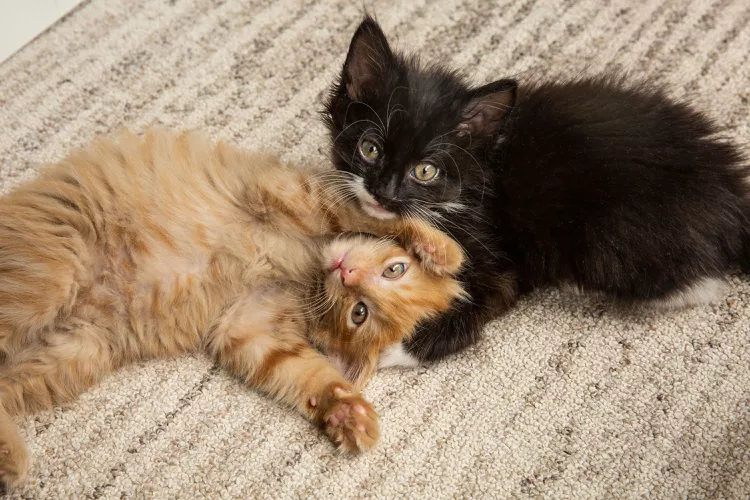
Why Two Kittens Are Better Than One
There are benefits of adopting two kittens, such as more feasible training and companionship between them.
Everything You Need to Know About Raising Your First Cat
Whether you are thinking about getting a cat or just adopted your first one, these are the things to know to make your relationship a lasting one.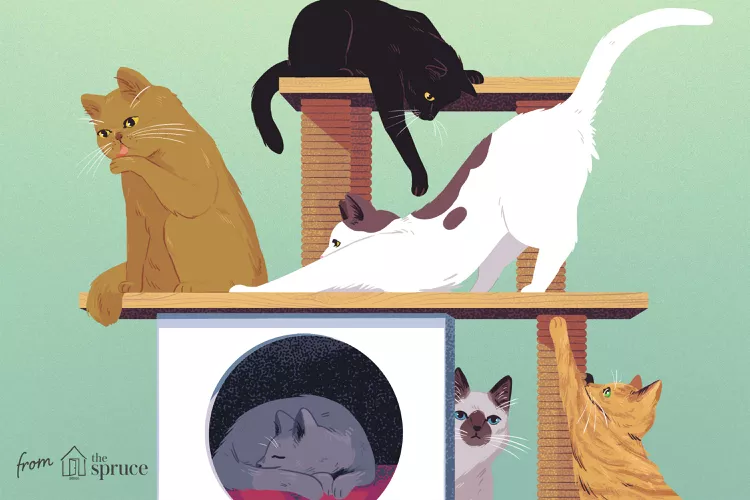
How Can I Tell the Sex of a Cat?
Telling male and female cats apart can be difficult for those who don't know what they're looking for. Here are helpful tips to discover their sex.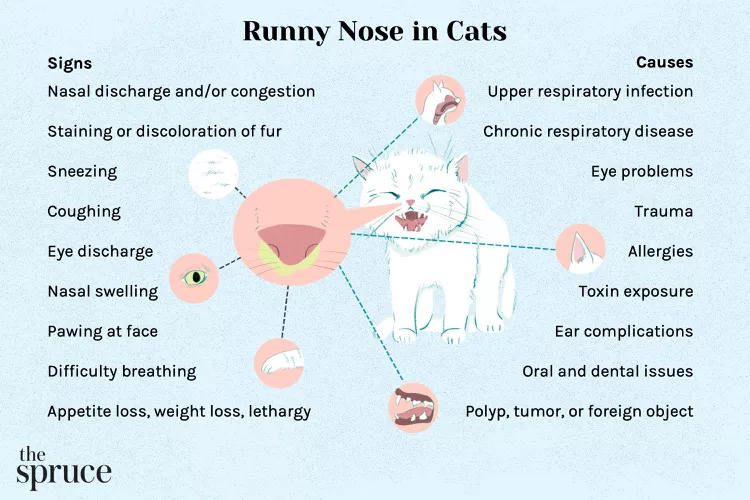
Runny Nose in Cats: Causes and Treatment
Cats get runny noses due to upper respiratory issues, but many conditions can cause this. Learn the causes of runny noses in cats and the associated signs. Find out how vets diagnose and treat cats with runny noses.
How Long Can You Safely Leave Canned Cat Food Out?
You cannot safely leave canned cat food out all day. Twenty to 30 minutes is the max, so give smaller portions and reheat food for later feedings.
Meat Byproducts in Cat Food
Most cat experts recommend premium brands of cat food that avoid ingredients like byproducts and chicken meal. Learn what to look for on the label.
How Much Wet Food to Feed a Cat Every Day
The amount of wet food your cat needs depends on factors such as age, weight, body condition, and lifestyle. Learn how much wet food to feed your cat.
Taurine for Cats
Taurine is an essential animal protein in your cat's diet. Learn more about the various ways it supports your feline's body.
The Different Types of Pet-Friendly Workplaces
Discover the different types of pet-friendly workplaces and the benefits they offer employees. Learn how to create a pet-friendly workplace and the best practices for pet owners.
8 Halloween Safety Tips for Pets
The spooky holiday can be overstimulating and even dangerous for pets. Here's how to avoid the problems caused by toxic candy and incessant doorbells.
Why You Should Keep Cooked Bones Away From Your Dog This Holiday Season
People should be aware of the dangers of cooked bones, especially around the holidays when they might be more accessible to your pup.
Can Dogs Eat Squash? Here's What a A Vet Thinks
Dogs can safely eat squash as long as it's prepared correctly. Find out how to properly feed this versatile fruit to your dog.
16 Small Cat Breeds That Are Petite Purring Machines
Small cat breeds like the Singapura and munchkin may be smaller than an average housecat, but they leave a giant imprint on your heart.
10 Best Cats With Big Ears
Cats with big ears often look extra endearing. Check out some common big-eared cats, including the Abyssinian, Devon Rex, Siamese, Sphynx, and more.
Javanese (Colorpoint Longhair): Cat Breed Profile, Characteristics & Care
The Javanese is a semi-longhaired, color-pointed cat of Siamese type. They are related to the Siamese, Colorpoint Shorthair, and Balinese breeds.
How to Stop Aggression in Dogs
Dog aggression can be a serious behavior issue for pet owners. Learn how to stop aggression in dogs before someone gets hurt.
Should Dogs Be Allowed on Furniture?
Should you let your dog on the couch or in the bed with you? Are there any reasons we should not let dogs on the furniture? Here's what to know.
Why Do Dogs Eat Rocks?
One of the most common non-food items for dogs to eat are rocks. Here's what to know about why dogs eat them and how can you stop your dog from eating rocks.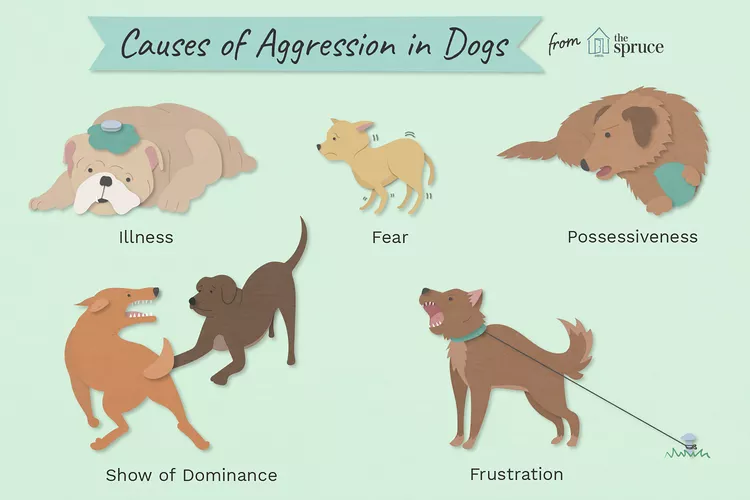
Why Dogs Get Aggressive and How to Stop It
Why is your dog biting you aggressively? Sometimes dogs can become aggressive with little warning. Find out what causes your dog to become aggressive so you can work with the behavior.
Thai Ridgeback: Dog Breed Characteristics & Care
Learn all about the Thai Ridgeback, a rare breed from Thailand. Find out how to care for the loyal dog and where to buy or adopt one.